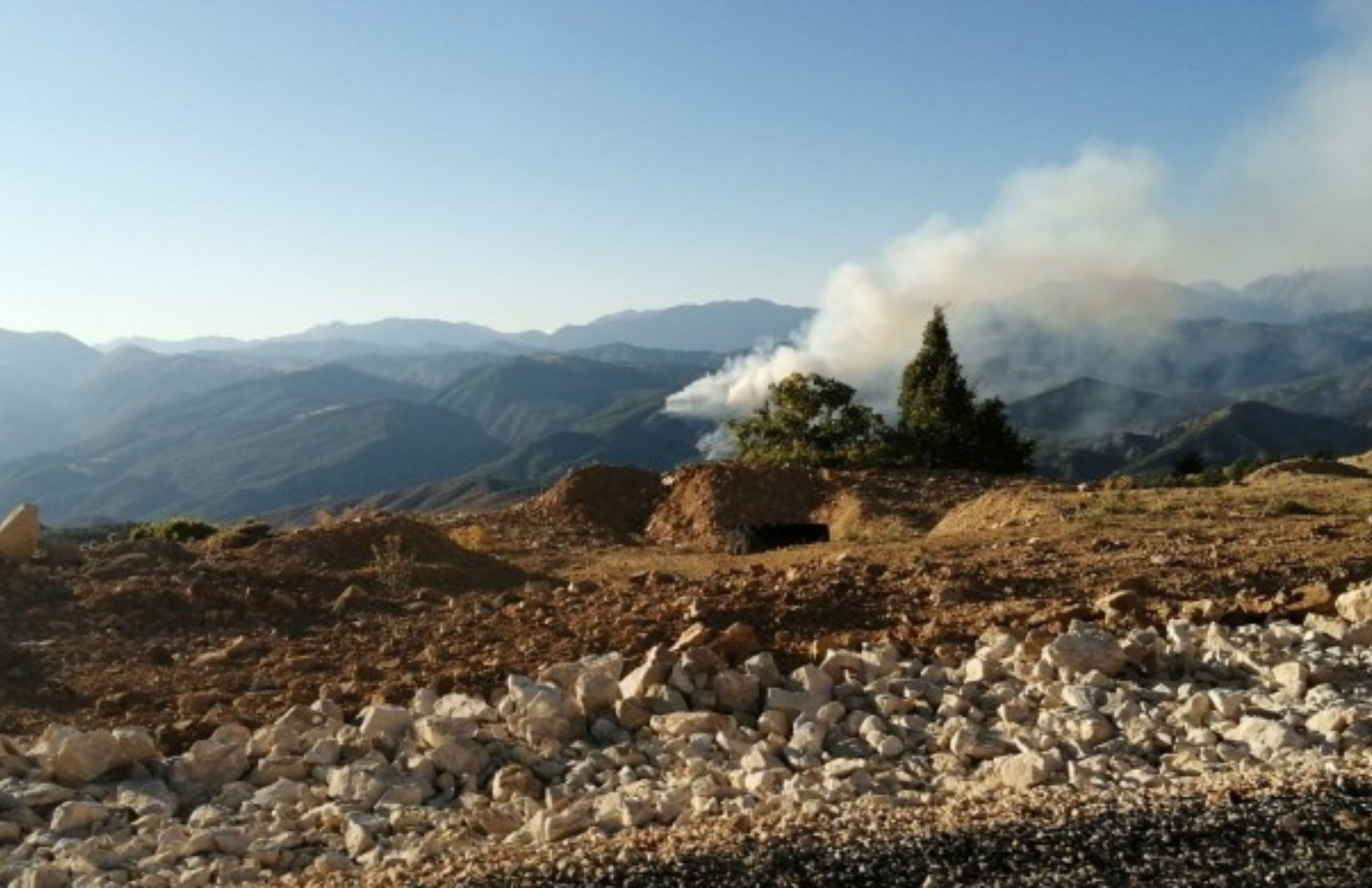Izmir Seminer on Reporting on Womens Issues
The program is implemented within the context of Countrywide Network for Monitoring and Covering Media Freedom and Independent Journalism project dubbed as BİA² which continues on the gains of the previous Independent Communication Network (BİA) project.
Mostly women fifty-three local reporters and representatives from women's organizations from across the provinces of Izmir, Denizli, Mugla, Burdur, Isparta, Manisa, Aydin, Usak and Eskisehir of the Aegean Region, attended the program at the Kaya Prestige Hotel. Most of the participants were women.
* Women's representation in the media,
* Following and covering violations of women's rights,
* National and international regulations on women's rights,
* Freedom of expression in the Civil Code, Penal Code and the Press Law,
were among top issues discussed during the training. Participants discussed the media's attitude toward violence against women by referring to the example of photo-model Deniz Akkaya whose revelations as victim of domestic violence was recently on the media.
The positive impact of women's movement on the progress in the rights of women was also discussed during the training. Representatives from the "Ucan Supurge" (Flying Broom) women's organization, "Pazartesi" (Monday) magazine and "Kazete" shared with the participants their experiences in the field of alternative women's reporting.
The training opened with a speech by Sevda Alankus, the BIA training consultant and the dean of the Communications Department of the Eastern Mediterranean University. Alankus spoke about the project's goals and gave information about the training programs by BIA.
Gulbahar: "Even our newest law violates agreements against discrimination"
Lawyer Hulya Gulbahar, one of the founders of the Women's Platform of Civil Code and the Turkish Penal Code, made a presentation on Saturday on "National and International Regulations on Women's Rights." She said that even the newly amended Civil Code violates agreements against discrimination.
Gulbahar argued that Turkey fails to fulfill its responsibilities although having ratified many international agreements on women's rights and discrimination and adopted them as norms of internal law.
She stated that the budget allocated for the General Directorate of Women's Status and Problems is very symbolic, adding that more resources should be allocated to fight against women's rights violations.
Gulbahar argued that the improvements in the new Civil Code are not reflected in the lives of women and said that the media and non-governmental organizations could play a huge role in preventing violence against women.
Gulbahar called on the media to especially pay attention to the issue of sharing the property acquired by a family, and the requirement of shelters in regions where the population is over 50,000.
Following Gulbahar, Professor Doctor Eser Koker from the Communications Department of Ankara University, and Hulya Ugur Tanriover from the Communications Department of Galatasaray University made a presentation on "Media and Women's Representation, and Violations of Women's Rights in the Media."
Koker: "The media is now the product of a monologue, not polyphony"
Koker spoke first in the joint presentation. Although there is an important increase in the number of women working in the media sector, this increase is far from meeting the targets, said Koker. He added that there is almost no women in the management positions.
According to Koker the basic functioning of the media has changed since the mid 1970s. He said that the media has assumed the role of acting like a private life coach instead of providing a public service.
"The media is no longer the product of polyphony but that of a monologue," said Koker. He said the media, which has lost its impartiality and objectivity can only regain impartiality by the equal representation of different social layers.
Koker drew attention to the importance of how the value of the news is determined. "News about women are on either the third or the seventh pages because women don't have money," said Koker. "The rest are about women who have succeeded in making money."
Tanriover: "Women's representation in the media is sexist and racist"
Associate Professor Dr. Hulya Ugur Tanriover drew attention to the horizontal and vertical discrimination against women by the media during her speech.
Tanriover said that social sexuality is different from the sexuality from birth, adding that women are represented within that framework. "When two babies of different sex are born, there is no difference between them apart from the anatomical differences," said Tanriover. "The difference begins when they are dressed. Boys are dressed in blue and girls in pink. As Simone de Beauvoir says, 'you are not born a woman, you become a woman."
Tanriover argued that women in the media are either portrayed in traditional roles, as good wives, altruistic mothers, or as victims of rape for example, or as sexual objects. She said all such representations are "sexist" and "racist."
According to Tanriover the image imposed upon women in newspapers, television, paparazzi programs or soap operas is important. However, a more important problem is the fact that women are not represented at all, she said. Women are "being symbolically destroyed," she argued.
"We come across women in either news on the third page, or as beauties of the back page," said Tanriover. "The Turkish media has earned the world literature the concept of 'Back Page Beauty'"
She also criticized the media for ignoring the work, success, efforts, solidarity, rights and the gains of women in the news.
Experiences by Kazete and Ucan Supurge
Under the topic, Alternative Women's Reporting, Berrin Delikci from Kazete and Selen Dogan from Ucan Supurge talked about their experiences.
Delikci said that Kazete, published by volunteers, aims to reflect the women's point of view in every stage of its preparation. Kazete is nine years old.
Dilekci said that Kazete's sole income is from sales and advertising revenues, adding that this creates problems. She said that they have hired a national handling company to distribute the paper. "I think it is important that a woman's paper is seen on the newspaper racks," said Delikci.
Selen Dogan, who spoke about her experiences at the Ucan Supurge said the "Local Women Reporter's Network," which began in March 2003 is continuing in 12 provinces with 12 women reporters.
Dogan described their point of departure as the disturbance over women's misrepresentation or inadequate representation in the media. She said that they are against women being represented as "objects of desire" in the media on the third pages as subjects of news of violence such as rape or murder.
"Everything that happens in life concerns everyone including women," said Dogan. "Women are being either misrepresented or inadequately represented in the media."
Dogan underlined the need for reaction against the mainstream media, which enforces discrimination against women, which portrays them within traditional forms, and which reproduces violence. "We have set off with the aim of reporting from a woman's point of view, to hear and make heard the voices of women, and to create an 'alternative women's media,'" said Dogan. "This is how the Local Women Reporter's Network was established."
Workshop by Mater and Calislar
On Saturday afternoon BIA project advisor Nadire Mater and journalist Ipek Calislar conducted a workshop on "reporting on women's rights violations and news monitoring."
Before the workshop, Mater made a short presentation on women's position in the media in Turkey and in the world.
She showed the participants the first pages of 12 national newspapers dated October 7. She emphasized the fact that in half of those papers, there was no photographs or quotes of women on the first page. The other half of the papers included photos or quotes of women, but with a negative tone. "Women have no place in the media," said Mater.
She argued that news, with its language, theme, source and appearance is masculine and said this should change.
Calislar stated that there is an improvement in the mainstream media over the presentation of women. As an example, she, together with the participants, evaluated newspaper stories about model Deniz Akkaya being beaten by her boyfriend. During the workshop, which continued through Sunday, participants were asked to write a news story on the incident.Mater and Calislar evaluated the stories and commentaries written by participants.
Demir: "We stand by all that have been turned into 'the other'"
After the workshops, Beyhan Demir spoke about her experiences at Pazartesi magazine, another example of alternative women's reporting.
Pazartesi magazine is the "outcome of women's struggle to create their own written history," said Demir, adding that they stand by everyone who has been turned into 'the other' and that they aim to reveal discrimination that women go through.
Demir stated that they do not strive to be objective when writing news. We aim to show women the right way and to direct them, she said.
She added that it is very important for them to announce to women through the magazine that they can get help and to inform them about their gains.
"In our stories, we try to use scientific data, and we reject myths," said Demir. "We refrain from a sexist point of view when using certain concepts. We feel it's important to reveal discrimination against the disabled, Kurds, Armenians and homosexuals. We are trying to create our own language."
Eyuboglu: All that were annulled in the Press Law are now included in the TCK
Meric Eyuboglu from the Istanbul Bar Association, who is the lawyer at BIA's Legal Support Desk, talked about regulations in the Press law and the new Turkish Penal Code (TCK) in his presentation titled "freedom of expression in the TCK and Press Law."
According to Eyuboglu, all but two articles on prison sentences for journalists annulled from the Press Law are included in the new Penal Code. He said that this threatens the freedom of expression.
Lawyer Eyuboglu explained article 19 of the Press Law titled, "Affecting justice," article 20 titled, "Encouraging sexual attacks, murder and suicide," and article 21 which envisages not revealing the identity of the offender or the victim, if he/she is under 18. He argued that the TCK should be criticized in that it limits freedom of expression.
The training ended with Mater giving participants information about the bianet Web site and getting reporters' evaluations of, and recommendations on the program.
The training programs on Women's Rights Reporting, which has formerly been conducted in the provinces of Batman, Ordu, Eskisehir and Canakkale, will be held in Adana on November 26-27. (KO/EO/EA/YE)
Military operations hamper response to wildfires in Dersim





